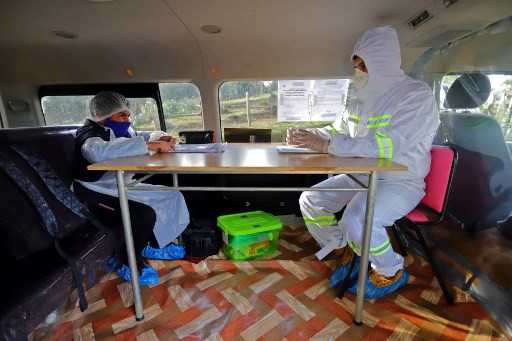No internet, no problem: Teachers in Chile take class to students
25 June, 2020

In the south of Chile, a rural school is getting the classroom to students, deploying vans to help teach pupils who may not otherwise have access to education through the coronavirus lockdown.
Students once rode found in the cars to attended the Dream House School found in the tiny town of Catripulli, positioned in Araucania, among the poorest regions found in Chile.
In this cold, rainy and rural area of the country, the vans now travel to a handful of pupils' homes, after a huge selection of children were left adrift when classes were suspended in March.
About 70 percent of Dream House School's 101 pupils are Mapuche, an indigenous people who are in Chile and Argentina.
Most don't own pcs and even fewer get access to the web, meaning the pupils can't be a part of online classes.
The coronavirus has emptied Chile's schools, forcing an incredible number of children to check out their lessons online, but there are regions where up to 76 percent of pupils don't possess access to the internet, according to a study by the Digital Region Foundation.
And while children may have been supplied with assignment work in some recoverable format, they still don't possess the sort of teaching support that is available online.
Preschool instructor Marcela Cea, 29, and van driver Alexis Araneda, 34, are among those people who are planing a trip to pupils' homes to provide lessons.
"It appears super good to me, because there are duties that one cannot understood, not the parents, therefore the teachers may come and give extra classes," Katalina Zuniga, an 11-year-old scholar who receives lessons before her house, told AFP.
Her mom, Modesta Caniunir, says the effort helps parents and now the "pupils will not get behind on their homework."
Araucania, around 500 kilometers south of the capital Santiago, may be the third worst affected region in the country from coronavirus.
Chile has recorded a lot more than 254,000 conditions and over 4,700 deaths from COVID-19.
Emotional care
Inside the van, actions are taken to prevent spread of the virus, such as for example public distancing, wearing of masks, and protective attire and shoes.
Pupils receive hand sanitizer and sit on chairs placed on carpets that are washed with chlorine.
The aim is not just to provide for the children's educational needs, but also their emotional ones.
Before the class begins, the teacher speaks to the pupil to see his or her state of mind.
Cesar Mendez, a 12-year-old, likes science school best. The institution on tires "helps us perform our classwork which I don't know how to carry out and neither does my mother," he said, before going to lock up goats in the family members pen, a fun distraction given that he no more spends his times in class.
Meanwhile Zuniga, the 11-year-old, is learning about the Mapuche new time -- We Tripantu -- which is celebrated through the winter months solstice from June 21-24.
She says she's without doubt what she's wishing for in the brand new year: a finish to the pandemic.
Leveling the playing line of business
The majority of the children's father and mother increase livestock and grow agricultural products. As of April, simply four percent had access to the internet, and just six percent had usage of a computer.
The majority of the children speak Mapudungun, their indigenous indigenous language, the institution principal Marcela Araneda told AFP.
Most schools in Chile are individual, meaning public schools like this one count on subsidies, and are trying to bridge the gap.
Private schools "possess technology, computers, usage of the internet, the opportunity to download information, watch YouTube videos, and have all the tools," explained Osmín Flores, a lead teacher.
He said the purpose of the mobile college is to "level" the playing field.
Just because they are rural children will not mean "they will have fewer prospects or be less intelligent," said Flores.
Source: www.thejakartapost.com
TAG(s):
